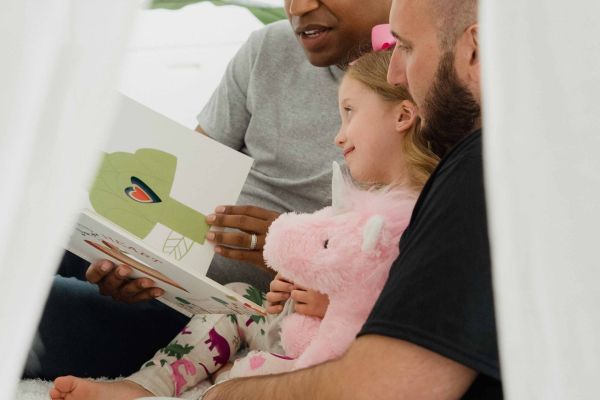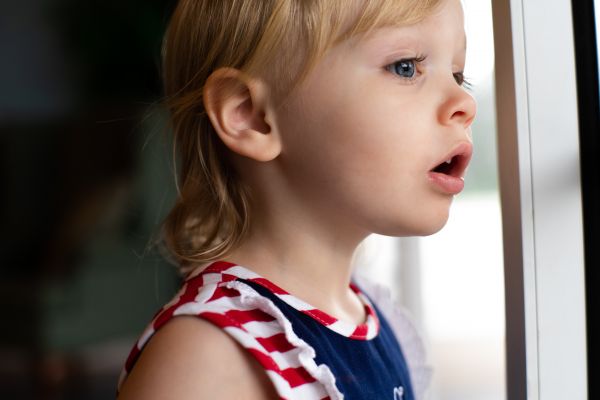Divorce
How to Tell Your Kids You’re Getting a Separation or Divorce
It’s important to talk to your kids before they hear it from someone else.
Posted February 6, 2020 Reviewed by Chloe Williams
One of the most difficult, painful conversations you'll ever face is talking to your kids about your plan to divorce. When you know that you will be separating or divorcing, it’s important to talk to your kids before they hear it from someone else. Imagine how upsetting it would be to hear it from a friend or another adult! Children will probably remember this conversation, what you say, when and where they hear it. It would be best to work with your spouse to decide how you will inform them.

1. Plan what you will say.
Protect your kids from your hurt or anger by planning (together) when, how, and what you will tell your kids. Plan to tell them on a day that allows for some family time, like a weekend. Don’t do it on a holiday or other special day, or just before school or bedtime. If it’s extremely difficult for you to speak with your spouse, or you can't agree on how you will do it, consider using the services of a mediator, divorce coach, or counselor to help you work out the details. Don’t blurt it out impulsively in an emotional moment. That definitely won’t go well!
2. Talk to your children together.
This might be hard, but it lets your kids know that you’re committed to working together as their parents. It’s also important that your children hear this news at the same time and directly from mom and dad; not from the sibling who heard it first. So if your kids are different ages, plan to share the basic information with all your kids together. Later you can follow-up with the older children during a separate conversation. If you can’t do it together because you are concerned about safety or conflict, then seek help in developing your plan.
3. Develop a non-blaming narrative.
Avoid the temptation to assign blame or say whose “fault” this is. You may feel that you want your children to know the “truth”—“Mom had an affair,” or “Dad is leaving us.” This will cause your children to feel caught in the middle, in a loyalty bind, and that isn’t healthy for them. The “truth” is less important than providing the support and reassurance that your children need. To the extent that you can, use the “we” word when you’re explaining the decisions that have been made. “We aren’t happy together,” or “We both want our arguing to stop,” or “We have tried to work out our differences, but we haven’t been able to.”
4. Tell your kids why this is happening.
It is not important, or even appropriate, that you provide specific details about why you are planning a divorce. However, your kids will want to know why this is happening. Older kids will press for information so that they can understand why their lives are going to change. So while you don’t want to share details of a personal nature, be prepared to give some type of general explanation without blame. “We hoped this would never happen but we can’t seem to fix our relationship.” “We both want different things in our lives.” “We like each other and want to be friends, but we don’t love each other anymore.” Remember that these are grown-up problems that your kids, even smart and mature kids, can't understand yet.

5. Tell your kids what will change and what will stay the same.
The most important thing kids want to know is how your divorce is going to affect their lives. Your kids will want to know where they’re going to live, with whom, and what about their lives is going to change. You can help your children to be prepared for these changes by being honest about what you know, and what you don’t know. If you and your spouse have settled on how you will share time with the kids, let them know the schedule. Reassure them about the things that will stay the same: their school, or friends, or sports, or other activities. Be sure to let them know that your love for them will never change. "Parents can divorce each other but they never divorce their kids."
6. Tell your kids which parent will leave the home.
Unless you plan to nest, the more you can tell your kids about where the departing parent will be living and when they will be seeing him or her, the better. They’ll need to know, right away, that they will be able to maintain a quality relationship with both parents, even though they won’t be living under the same roof. “We are still a family, under two roofs.”
7. Reassurance is the key.
Your children will need lots of reassurance that the divorce is not their fault. Stress that nothing they did could have caused—or prevented—what is happening. Since there are a lot of unknowns at the start of a separation, don’t make promises you may not be able to keep. Don't promise that you'll never have to move, or that they will still go to sleep-away camp in the summer, unless you are certain. Instead, stick with the assurances you can make for the present time: “You will still go to your school,” or “You’ll still have Christmas and birthdays and sleepovers with your friends.” Reassure them that it may be hard for a while but that "We will all be okay after we get used to the new arrangements."

8. Your kids’ reactions are completely normal.
The news may (or may not) be completely unexpected and will certainly change their lives. Try to be as understanding of no reaction—which is actually a reaction—as you would be if they were in tears or extremely angry. Your children may not know how to express their intense emotions. They may be overwhelmed and shut down. It may be some time before they can express their feelings. If you are calm when you tell your children, they will have less anxiety and are more likely to anticipate that they will be ok. However, it is fine for the children to see you upset or cry, as it gives them "permission" to have feelings too. Just be sure that you are able to control your emotions enough that they don't need to take care of you. Remember, it is important to reassure them that everyone in the family will adjust to the changes and heal.
9. Invite their questions (but don’t pressure).
Some kids don’t want to talk right away. Others will have many questions. To the extent that you can, be honest and clear in your responses. If you don’t know the answer to a question, tell them that you’ll let them know when you figure things out. This conversation is just the first, and it will unfold in many ways over time. Let them know that they can always ask new questions when they arise. But be sure to keep them out of the legal and financial issues as you move toward divorce.
10. Give them time to adjust to the news.
It will take time for you and your children to adjust to this huge change, and while you may be confident in the future you envision for them, it will take some time for them to see that future play out. In the meantime, be emotionally present and reassuring. Modeling your own healing and recovery over time will help them adapt and heal too.
Adapted from various sources by Ann Buscho, Ph.D., a divorce coach and psychologist in San Rafael, CA.
For more information, read “What Should We Tell the Children?” by Joan Kelly, Ph.D.
© Ann Buscho, Ph.D. 2020
References
“What Should We Tell the Children?” by Joan Kelly, Ph.D. http://www.shared-care.ca/files/How_to_Talk_to_the_Kids.pdf
























